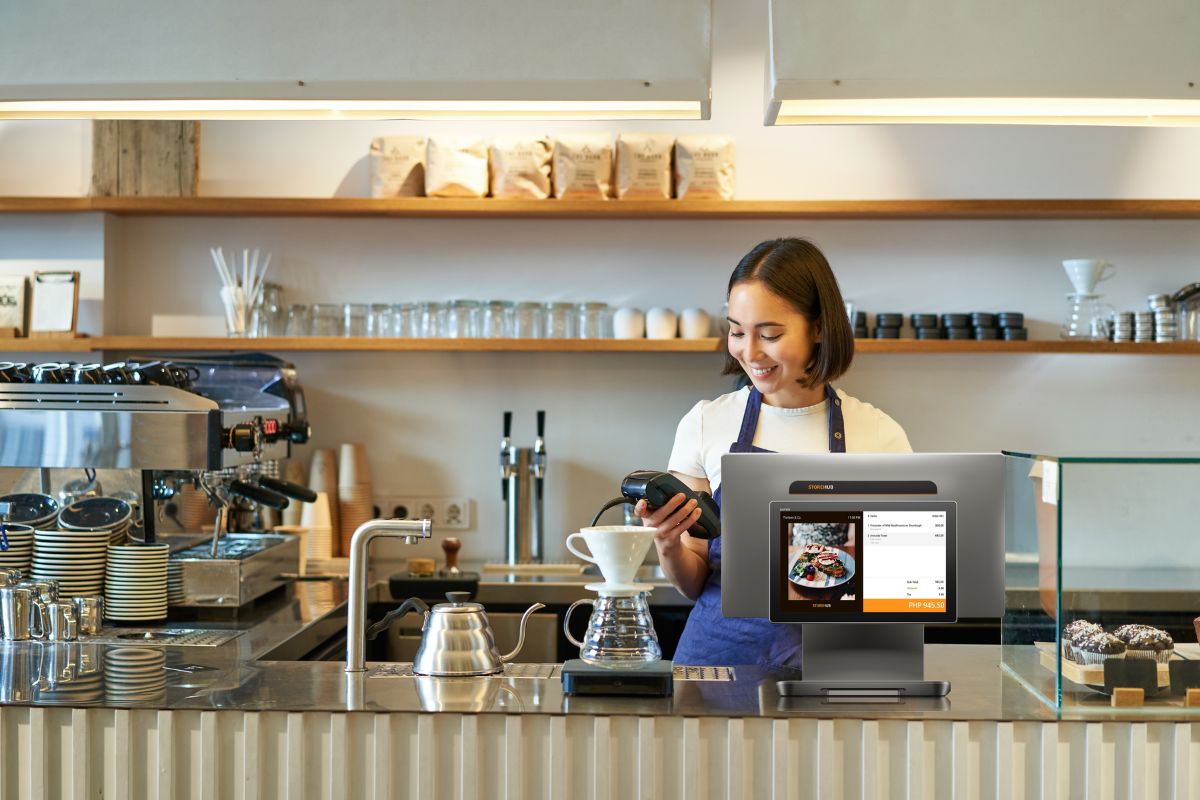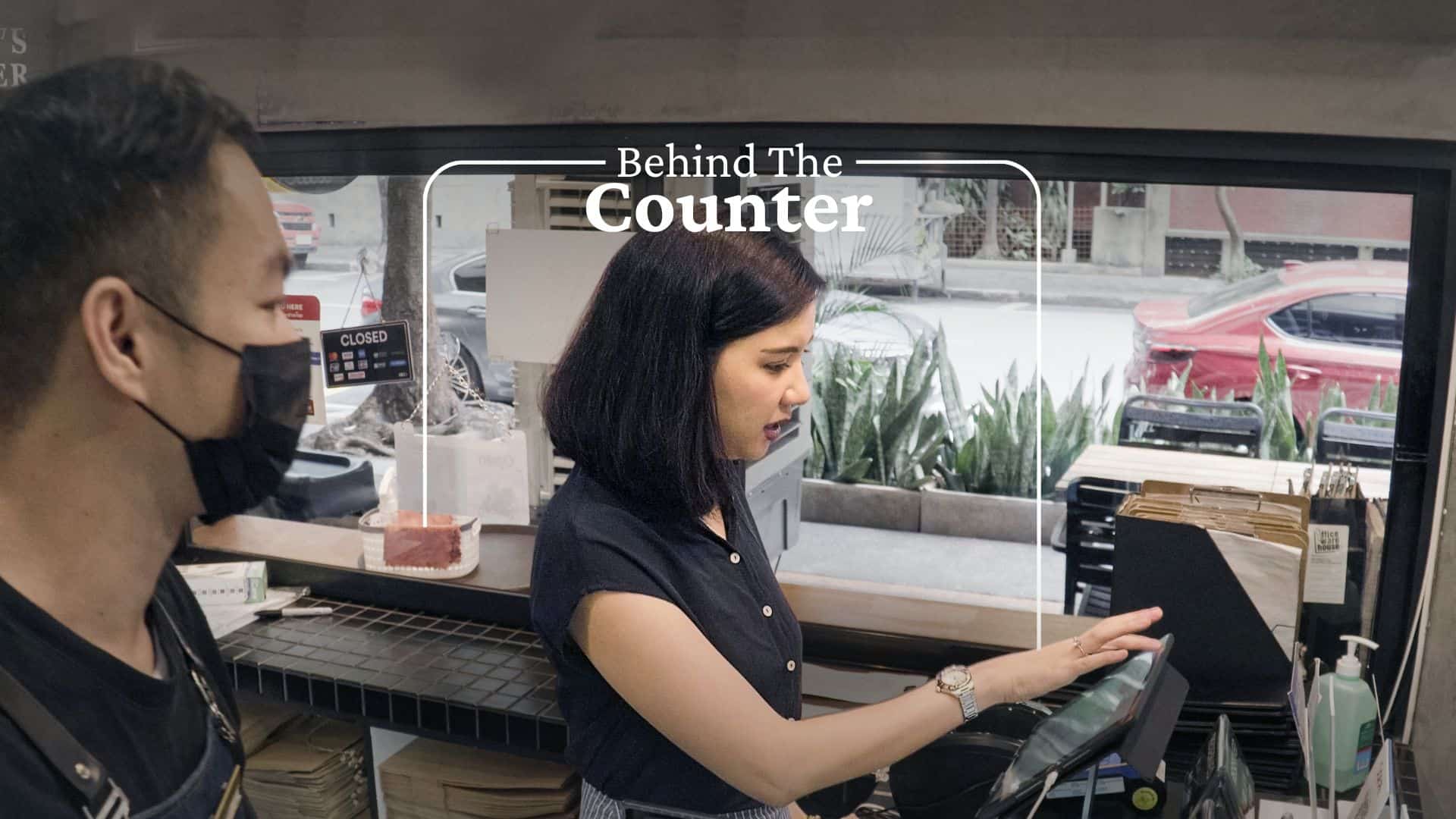In the F&B industry, finding the right POS system can make a huge difference in your restaurant’s efficiency and customer satisfaction. While both StoreHub and ANSI POS offer powerful solutions, they’re designed with different strengths that cater to your varying business needs.
In this guide, we’ll look at the core features, costs, and unique advantages of each POS system to help you make an informed choice.
What is ANSI POS?

Photo Credit: ANSI POS Official Website
ANSI POS is a point-of-sale system for restaurants and cafés, built on a Windows-based platform. It supports operational workflows and offers a range of features for managing restaurant operations.
ANSI POS’ Features in the Philippines
Here are some of the key features that ANSI POS offers in the Philippines:
- Bring Your Own Device (BYOD) Architecture: Enables businesses to use their existing devices, eliminating the need for expensive proprietary hardware.
- E-Commerce Platform: Supports online ordering, helping restaurants tap into digital sales channels and grow their online presence.
- Integration with SAP Business One: Offers advanced tools for inventory tracking, sales management, and comprehensive business operations.
What is StoreHub?

StoreHub is a cloud-based POS system built to simplify day-to-day operations. With 30+ features such as inventory management, real-time sales tracking, automated SMS marketing, and a fully integrated loyalty program, it equips all types of businesses with everything they need to manage and grow their business effectively.
StoreHub’s Features in the Philippines
Here are some of the key features that StoreHub offers in the Philippines:
- POS system: to easily manage your day-to-day operations.
- QR Order & Pay: to minimize order mistakes by letting customers browse the menu, place orders, and make payments directly from their smartphones.
- Inventory management: to lower waste and cut costs by efficiently tracking inventory in real-time.
- Multi-location management: to manage multiple stores effortlessly, anytime and anywhere–no need to be physically in-store 24/7.
- Reporting and analytics: to get real-time sales reports and data to help you make better decisions for your F&B business.
- Employee management: to let employees clock in and out with a simple photo on the POS—saving you time, reducing mistakes, and cutting down on admin work.
- Online ordering for F&B: to enable customers to place orders for delivery or pick-up, opening up a new revenue stream for your F&B business.
- StoreHub Loyalty: to build and manage your own loyalty program directly from your POS—no need for additional tools or extra staff.
StoreHub vs ANSI POS: Main Comparison
Want a clearer comparison of both POS Systems? Here’s an overview of StoreHub and ANSI POS’ features and prices.
| StoreHub | Ansi POS | |
| Main products | POS system, QR Order & Pay, StoreHub Loyalty | POS |
| Software pricing | From ₱1,874/month (billed annually) | WinVQP POS Software Front-end cashiering license: ₱25,000 Backend license: ₱45,000 Kitchen monitor license: ₱20,000 Claim monitor license: ₱20,000 |
| POS hardware costs | StoreHub Android D3 Pro: ₱30,000 StoreHub Android Falcon1: ₱30,000 | Hisense HK578 POS: ₱101,000 |
| Cloud-based | Yes, which allows you to remotely access and manage your F&B business | No |
| Accounting integration(s) | Quickbooks Xero | No |
| Customer support | 7-day customer support through calls, email, and live chat | Customers need to inquire directly for details on customer support availability |
| Other features | Inventory management Reporting & analytics Employee management Multi-location management Fully-integrated loyalty program Automated SMS marketing QR ordering Online ordering | Bring Your Own Device (BYOD) Architecture E-Commerce Platform Integration with SAP Business One |
Cloud-based: StoreHub vs ANSI POS
StoreHub’s cloud-based POS system empowers you to manage and monitor your business from anywhere, anytime. From real-time sales tracking to overseeing staff performance, it offers unmatched flexibility. Additionally, it eliminates the need for costly Windows licenses, making it a more budget-friendly option for businesses managing multiple branches.
On the other hand, ANSI POS relies on a Windows-based system, which requires separate Windows licenses for each branch. For multi-branch businesses, these costs can quickly add up, making it a less efficient choice over time.
Accounting Integration: StoreHub vs ANSI POS

StoreHub offers seamless integration with popular accounting software like QuickBooks and Xero. This allows your sales and inventory data to sync automatically with your accounting records, saving time and reducing the risk of errors. With StoreHub, financial management becomes efficient and straightforward, letting you focus on growing your F&B business.
In contrast, ANSI POS does not currently provide accounting software integrations. This means F&B businesses using ANSI may have to rely on manual data entry, which can increase workload and lead to inaccuracies in financial reporting.
Pricing: StoreHub vs ANSI POS
When it comes to pricing, StoreHub stands out with an affordable and straightforward payment structure. For as low as ₱1,874 per month (billed annually), you get access to StoreHub’s powerful cloud-based software. For hardware, options like the StoreHub Android D3 Pro or Falcon1 are priced at ₱30,000 each, making it a cost-effective solution no matter how many branches your F&B business has.
ANSI POS, on the other hand, charges higher upfront costs with a less transparent pricing structure. Its WinVQP POS software licenses start at ₱25,000 for front-end cashiering, ₱45,000 for backend use, and additional licenses for kitchen and claim monitors costing ₱20,000 each.
On top of that, the Hisense HK578 POS hardware is priced at ₱101,000.
Summary: Which is better for your F&B business in the Philippines – StoreHub or ANSI POS?

Choosing between StoreHub and ANSI POS depends on your F&B business’ unique needs, but here’s how they compare:
StoreHub offers a feature-rich and cost-effective solution tailored for all types of businesses. Its standout features include inventory management, real-time reporting and analytics, QR ordering, a fully-integrated loyalty program, and automated SMS marketing. With a user-friendly interface and multi-location management, it’s ideal for F&B businesses aiming to streamline operations and reduce costs.
ANSI POS, while offering customizable and omni-channel capabilities, caters to a broader range of industries. However, its lack of integrated features like CRM or online ordering tools might mean more manual processes. Additionally, the higher upfront costs for software licenses and hardware could be a challenge for businesses operating on tighter budgets.
For F&B businesses in the Philippines, StoreHub’s focus on affordability, ease of use, and specialized features make it the stronger contender for growth and efficiency.
This publication is provided for general information purposes only and is not intended to cover every aspect of the topics with which it deals. It is not intended to amount to advice on which you should rely. You must obtain professional or specialist advice before taking, or refraining from, any action on the basis of the content in this publication. The information in this publication does not constitute legal, tax or other professional advice from StoreHub or its affiliates. Prior results do not guarantee a similar outcome. We make no representations, warranties or guarantees, whether express or implied, that the content in the publication is accurate, complete or up to date.





Recent Comments